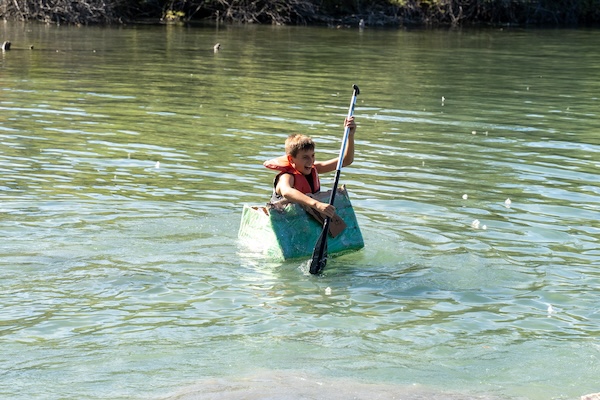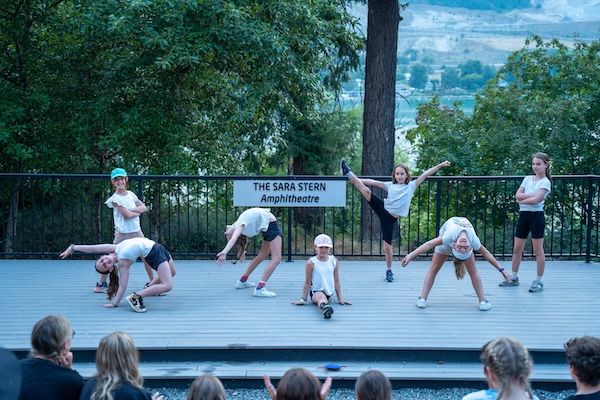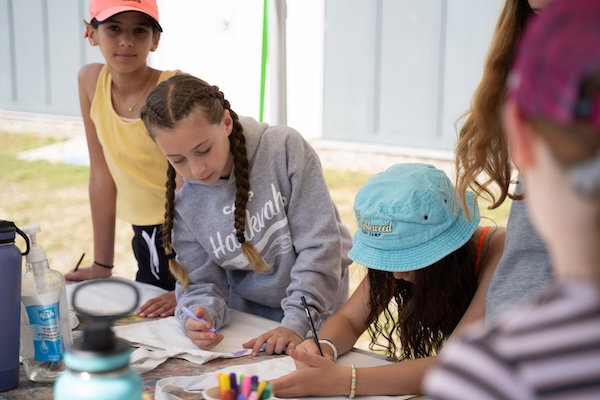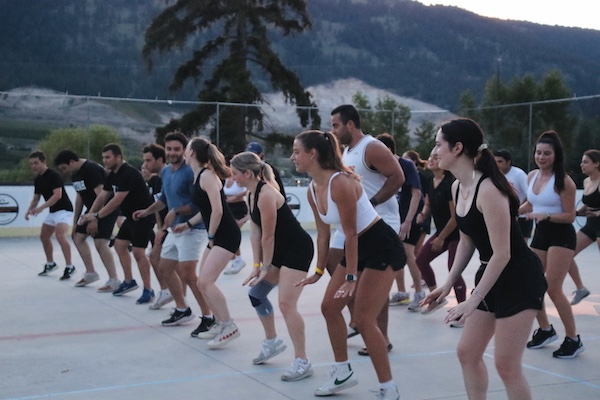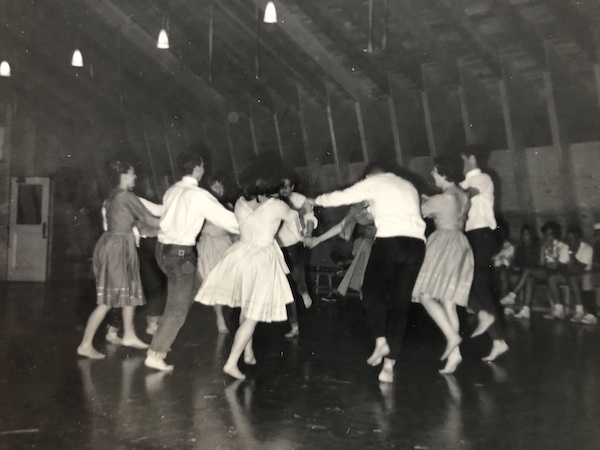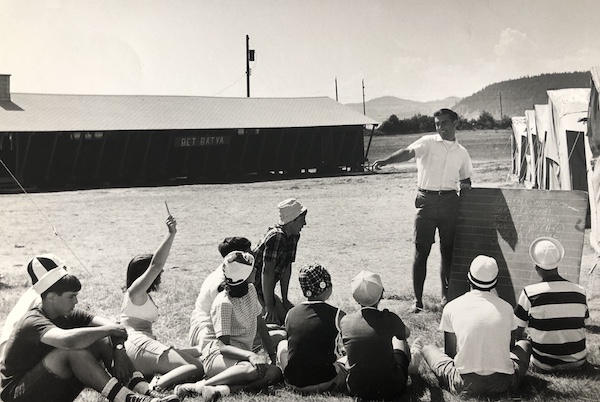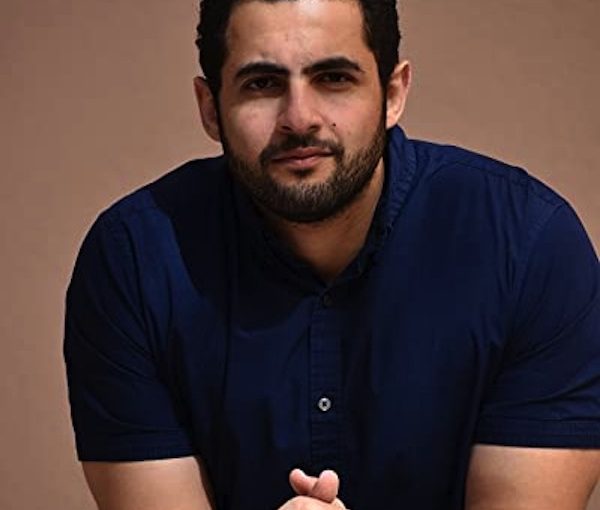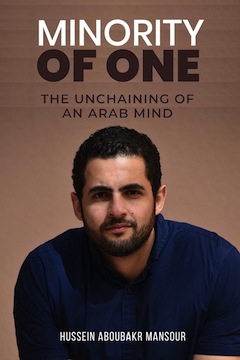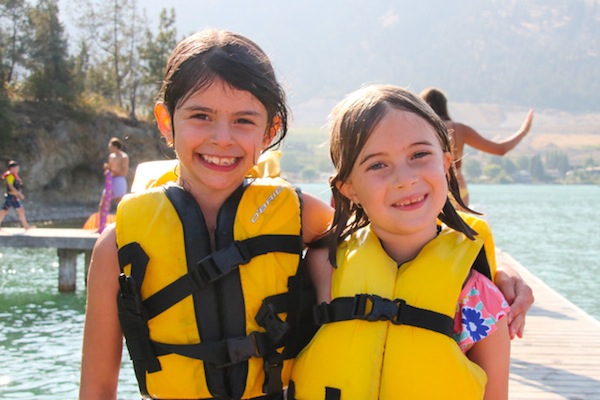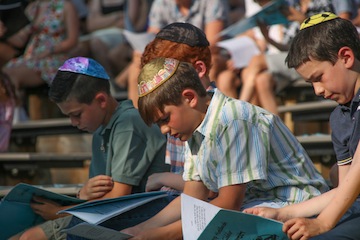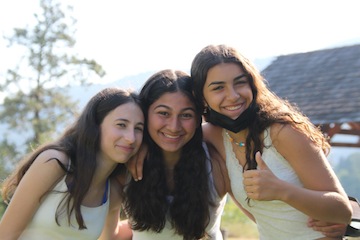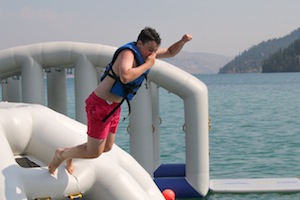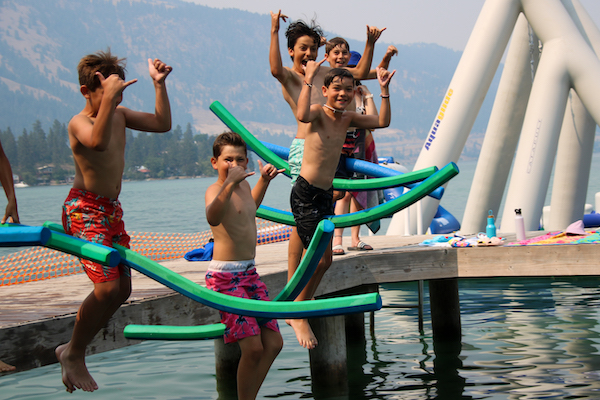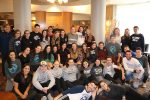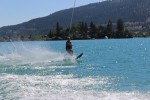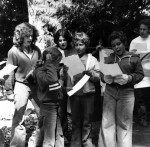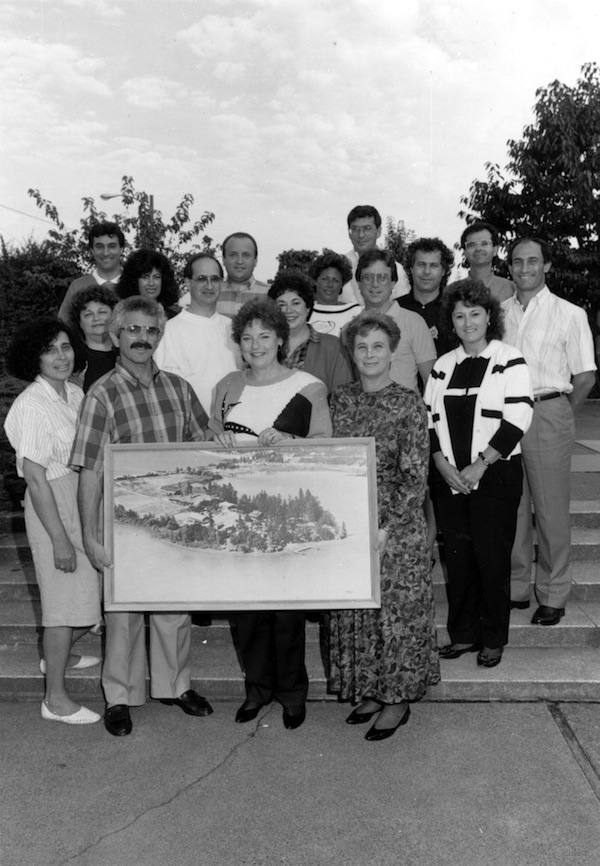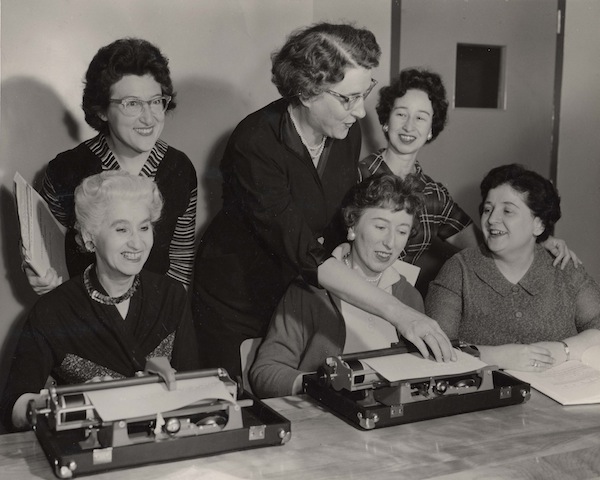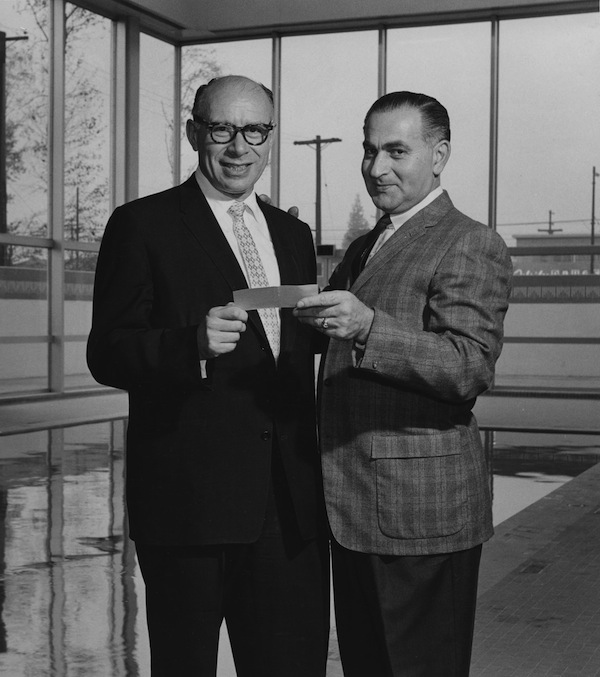Yachad activities in summer 2023 included one where campers were given a large box, tape, bubble wrap and scissors and told to make a functioning boat. (photo from Camp Hatikvah)
In the summer of 2023, Camp Hatikvah introduced a new activity just for their 13- and 14-year-old campers called Yachad. Named after the Hebrew word for together, Yachad was introduced with the aim of fostering connections and breaking down the barriers that sometimes divide today’s teenagers.
“Motivating teenagers to step out of their comfort zones can be a challenge. With this in mind, our goal was to design something new that breaks the ice, melts away self-consciousness, and brings campers together,” said Liza Rozen-Delman, executive director.
Knowing their audience well, Camp Hatikvah decided that friendly competition would be the key to success.
At the beginning of the summer, campers were organized into “house” teams and told that this would be their team for the whole summer while they competed for end-of-session prizes like a trip to the ice cream store.

Every second day or so, these teams would engage in wacky daytime competitions that required more enthusiasm than skill. From dress-up competitions to hilariously messy slime wars, Yachad quickly became a favourite activity among campers.
“We never knew what was coming next,” said one 14-year-old camper, “so each time Yachad came around we were filled with anticipation and excitement.”
The heart of Yachad lies in its unique approach to team building. Without knowing it, campers are learning myriad skills like communication and adaptability (shh … don’t tell them).
“The program is centred on the belief that shared experiences have the power to forge lasting bonds. In the midst of extraordinary escapades, campers not only form new individual friendships but also contribute to building a tight-knit community – a community that embodies the very essence of Camp Hatikvah’s mission,” said Rozen-Delman.
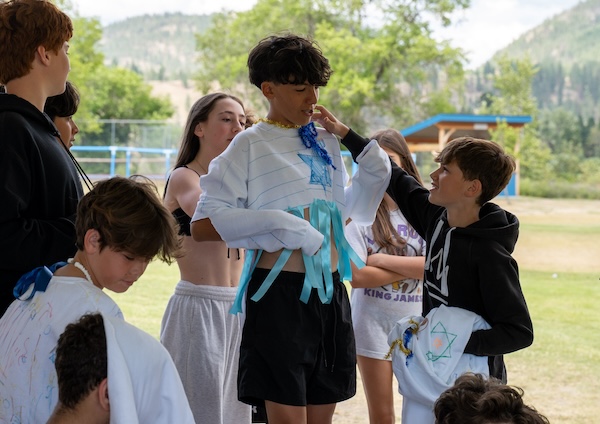
Last year’s activities included “noodle fencing,” where campers jousted with floppy pool noodles; a “wedding dress challenge,” where campers designed a dress using a spool of tulle; an “ugly Hanukkah sweater challenge,” where campers were given a sweatshirt and all sorts of tacky Hanukkah décor to attach onto it; and a “Disney challenge,” where the team needed to dress up like the characters of a movie they picked out of a hat.
“The highlight for me was the boat regatta,” shared a camper. “We were each given a large box, tape, bubble wrap and scissors and told to make a functioning boat. One of our teammates then had to go onto the lake in it to see if it floated. Ours didn’t last long and it was hilarious.”
“Yachad celebrates the joy of togetherness, unleashing the power of pure, unfiltered fun,” said Rozen-Delman. “In a world that is so heavy, it’s really just what these kids need.”
Looking ahead, Camp Hatikvah is already planning a repertoire of creative and crazy Yachad activities for the summer of 2024 – the sillier the better, as Camp Hatikvah knows the power of fun in bringing kids together and building community.
– Courtesy Camp Hatikvah

